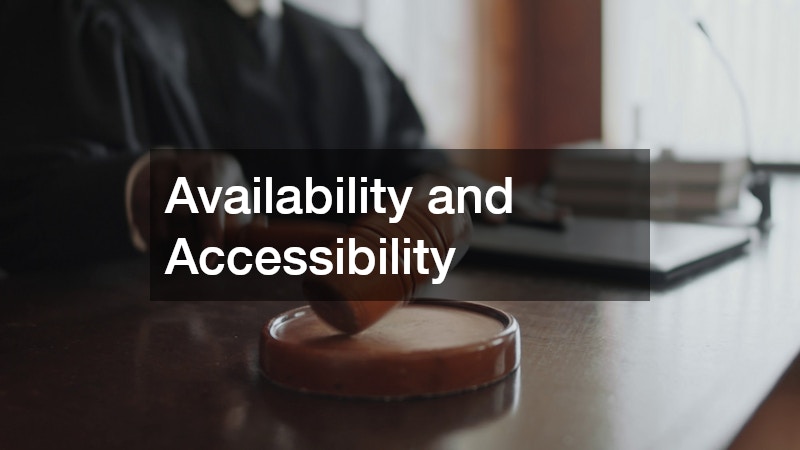How Bail Bond Agents Help You Navigate the Legal System
In this article, we explore the crucial role bail bond agents play in assisting individuals to maneuver through the complexities of the legal system. These professionals serve as vital links within the judicial process, providing not only financial support but also guidance through challenging times. By examining the multifaceted nature of their work, we gain a deeper understanding of their contributions to legal proceedings.
What is a Bail Bond Agent?
Definition and Roles
Bail bond agents are insurance agents who provide bail as surety for the appearance of defendants in court. They offer financial services that allow individuals to be released from custody while awaiting trial. With their assistance, families and individuals can secure the necessary funds to post bail, ensuring temporary freedom during legal proceedings.
In addition to providing bail funds, these agents are tasked with ensuring that defendants adhere to their court obligations. They often use a combination of expertise and resources to manage defendants’ appearances in court. Furthermore, they help demystify legal jargon for their clients, making the complex process more navigable.
Licensing and Regulation
The profession of bail bond agents is heavily regulated to protect consumers and maintain justice. Individuals must obtain specific licenses, which usually require examinations and background checks. Regulations ensure that agents meet ethical standards and operate with fidelity and accountability.
Each state imposes its own licensing requirements, which may include pre-licensing education or continuing education courses. These mandates ensure that agents remain informed about evolving laws and technologies affecting their profession. Collaboration with regulatory bodies also fosters greater transparency in bail bond practices.
Importance in the Legal System
Bail bond agents are integral to the legal system, providing necessary services in the facilitation of fair trial proceedings. They allow defendants to prepare for their cases outside of incarceration, which can significantly affect trial outcomes. Financial assistance from these agents offers an alternative to the often unaffordable cash bail amounts set by courts.
Beyond the financial, they serve as guides through an otherwise overwhelming process, educating their clients on various legal procedures and expectations. They help ensure that justice is not delayed by logistical or economic barriers. Their presence emphasizes the importance of accessibility within the legal framework.
How Does a Bail Bond Work?
The Bail Bond Process
The bail bond process begins when an individual is arrested and their bail amount is set by the court. A defendant or their family can approach a bail bond agent to procure a bond, which acts as a guarantee of the defendant’s return to face trial. Upon payment of a fee, the agent posts the bail amount, allowing the defendant to be released from custody.
Once the bail is posted, defendants must comply with specific conditions to remain out on bail. Failing to adhere to these conditions may result in the bail being revoked and the defendant returning to custody. The agent plays a critical role here by reminding clients of court dates and obligations.
Fees and Costs
Securing a bail bond involves an upfront fee, usually a percentage of the total bail amount. This fee, generally non-refundable, compensates the agent for their service in providing the bail money. However, the percentage charged can vary from state to state, often influenced by local regulations.
In addition to the initial fee, some bail bond agreements may come with additional costs and obligations. It’s crucial for clients to thoroughly understand these terms before committing. Transparency in these costs helps build trust between the agent and the client.
Conditions and Limitations
Bail bonds come with specified conditions that both the agent and defendant must strictly adhere to. Defendants are required to attend all court appearances and comply with any additional court-imposed conditions. Violating these conditions can lead to the forfeiture of the bail bond and possible legal repercussions.
Agents also impose limitations, such as travel restrictions, to ensure the defendant’s presence in court processes. These limitations are designed to manage risks associated with the bail agreement. Both the agent and the defendant share the responsibility of meeting these outlined conditions.
What to Look for When Selecting a Bail Bond Agent?
Reputation and Experience
Choosing a reputable and experienced bail bond agent is pivotal for a stress-free process. Established agents with years of practice often have better insights into navigating the legal systems and processes. Verifying the agent’s reputation through reviews and testimonials can provide additional assurance.
Experienced agents bring a depth of knowledge and networks that can be invaluable in handling complex cases. Their ability to anticipate and respond to procedural challenges can provide clients with peace of mind. Trust is fundamental; hence verifying credentials and history is advised.
Availability and Accessibility
In urgent situations, the availability and accessibility of a bail bond agent become paramount. An agent’s ability to respond promptly can have significant implications for a case’s outcome. Therefore, opting for agents offering 24/7 services can be an advantage.
Physical proximity to courts and detention centers should also be considered, as it can affect an agent’s response time. An accessible agent eases communication and coordination, essential components in stressful legal circumstances. These factors contribute to a seamless and efficient bail process.
Through understanding their roles, responsibilities, and the qualities to look for when selecting an agent, individuals can make informed choices. Collaborating with reputable agents facilitates a smoother transition through legal tribulations. Therefore, recognizing and appreciating their contributions remain crucial in fostering equitable justice for all.
.




Post Comment